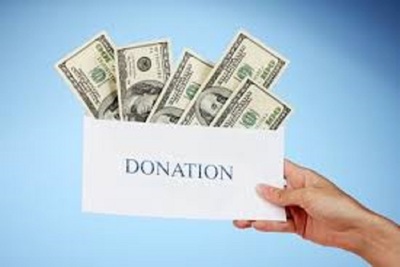Wells Fargo issued the following announcement on Sept. 25.
Up to 40 million U.S. renters impacted by the COVID-19-related economic downturn could face eviction once federal rental protections end, according to research from the Aspen Institute and the COVID-19 Eviction Defense Project. In response to this emerging crisis and as part of its $175 million commitment to COVID relief, Wells Fargo is donating $5.4 million in grants to 15 legal assistance organizations that work to keep people and families housed through services and advocacy efforts. A Harvard study has shown that two-thirds of tenants with legal representation are more likely to avoid an eviction judgment and remain in their home.
While the Centers for Disease Control (CDC) issued a temporary moratorium halting the eviction of tenants who cannot pay rent through the end of the year, the moratorium requires that tenants must still file a federal declaration form to be eligible for the eviction protection. Additionally, tenants are obligated to navigate varying state laws and local legal proceedings.
Lack of legal representation for low-income people is a glaring equity gap. Harvard researchers found an estimated 90% of landlords have legal representation, while only 10% of tenants do, putting them at a significant disadvantage. People of color, particularly Black and Hispanic tenants, represent 80% of people at risk of eviction, according to the Aspen Institute.
“The economic fallout caused by COVID-19 is causing housing instability for far too many renters, including for Black and Hispanic families,” said Eileen Fitzgerald, head of housing affordability philanthropy with the Wells Fargo Foundation. “As we continue to look for ways to help people stay in their homes, Wells Fargo believes supporting these organizations’ ability to provide legal assistance is an important step to helping people avoid eviction, which is often the first step toward additional financial instability and possibly homelessness.”
Through this first-of-its-kind initiative from the Wells Fargo Foundation, the grants will enable the organizations to provide free or low-cost legal counseling and representation to people at risk of eviction, advance advocacy work, and identify solutions to mitigate evictions across the U.S., including for people of color disproportionately affected by the economic downturn caused by COVID-19.
“Legal services attorneys play a crucial role in enforcing tenants' rights and preventing evictions,” said Shamus Roller, executive director of the National Housing Law Project. “Preventing evictions and preserving the rights of tenants are major racial justice issues, given our country's long history of segregation and the inequalities that play out in our current housing system. Evictions have always jeopardized the health and well-being of families but COVID-19 has raised the stakes, demonstrating the importance of eviction defense and rental assistance. Tenants who need help understanding the new moratorium, filling out their declaration form, or who have questions about eligibility should contact a legal services provider.”
Wells Fargo Foundation grant recipients in support of providing legal assistance to renters at risk of eviction include:
Atlanta Legal Aid Society
Bay Area Legal Aid
Colorado Legal Services
Community Legal Services (Philadelphia)
Greater Miami Legal Services
Housing Opportunities Made Equal (Richmond, VA)
Lawyers Committee for Better Housing (Chicago)
Legal Aid of North Carolina
Legal Services of Eastern Missouri
Mid-Minnesota Legal Aid
National Housing Law Project
Pro Bono Resource Center of Maryland
Southeast Louisiana Legal Services
Texas Rio Grande Legal Services
Volunteer Lawyers Birmingham
The company is focusing on deploying philanthropic support to nonprofits to help individuals, families, entrepreneurs and communities with a focus on assisting racially and ethnically diverse people disproportionally affected by the pandemic. As part of this effort, the Wells Fargo Foundation has awarded more than 1,200 housing grants in response to COVID-19.
Original source can be found here.












 Alerts Sign-up
Alerts Sign-up